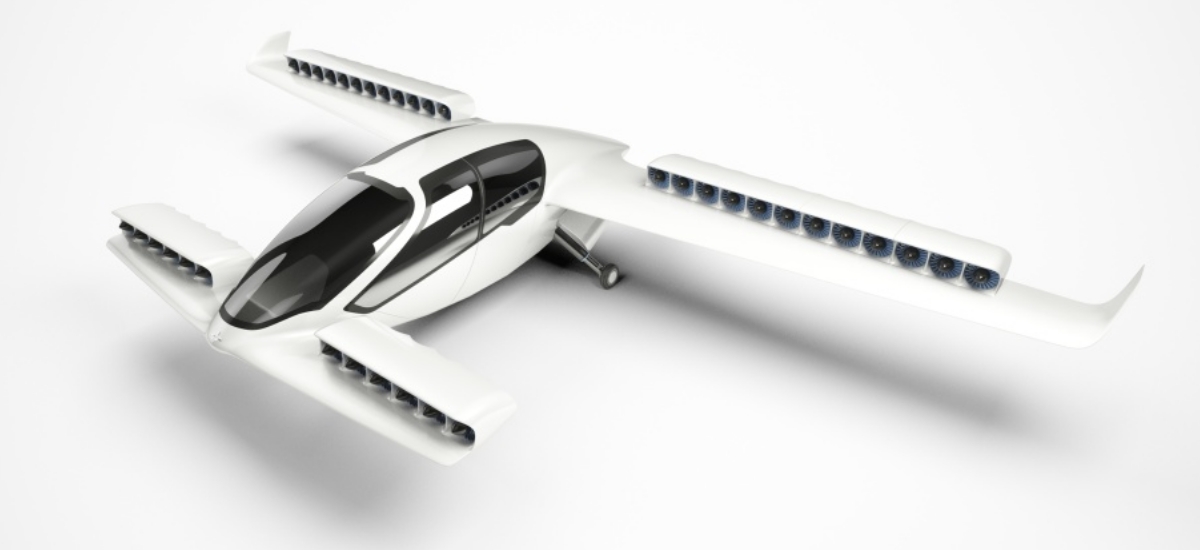
 Your Credit Estimate
Your Credit Estimate
 Your Credit
Your Credit
Your zip code helps us provide you with the most accurate vehicle pricing and vehicle availability.
We estimate your credit score to give you an idea of your monthly payments. To get an accurate payment amount, complete our credit application by clicking the Start Credit Application button below.
start credit application
Remember the Blackfly project? The Blackfly is so far possibly the closest we have to a personal aerial vehicle, listed as an ultralight aircraft made for one person. Earlier this year, Marcus Leng, founder of the backing company of the Blackfly, Opener, was so confident about the Blackfly after testing over 10,000 miles over 1000 tests, that he stated the Blackfly would be available for retail in 2019-2020. The industry for vertical takeoff and landing (VTOL) is still very young, and getting certification, let alone approval, is a couple of years, maybe even another decade away. The Moller Skycar was first quoted to be available by 2011, according to a 2001 Popular Science article, and we’re already a far way off.
In comes Lilium, one of the many companies that want to get in on the ground floor of personal and ride-hailing airplanes. We’ve heard of these services building up before. The Airbus at the 2018 Geneva Motor Show was one of the most recent examples to spark interest, and Uber has been known to offer aircraft services like an aerial ferry to avoid traffic during specific events in Miami, Florida. Uber and Airbus are also the big names in VTOL urban taxis, with the former aiming to expand their ride-hailing service, and the other starting their own service that doubles as a ground and air vehicle.
Airbus and Uber aren’t the only ones. Lilium has demonstrated their own success with a two-seat version of what will eventually be a five-seater in-service aircraft powered by electric jets. We’ve heard of this same technology in the Blackfly, powered by eight electric motors strong enough to lift the vehicle and a single passenger and fly a course of 25 miles. With a single 8 kWh battery running the motors, one can recharge up to 80-percent in 25 minutes via a 240-volt outlet – just like electric vehicles today. That’s how close we’re getting.
Another factor to consider would be the low operating costs, that in turn, may start a new industry. Remo Gerber of Munich-based Lilium says “[autonomous air taxis will happen] sooner than everyone thinks.” With that in mind, the company completed a $90 million Series B funding round earlier this year, with a target to launch a commercial launch service sometime in the early 2020s, and have the same service expand to several locations by 2025.
The Airbus’ Vahana electric Alpha One VTOL was flown on January 31, 2018. The autonomous test flight lasted only 53 seconds (bummer). Its four passenger City Airbus is also currently being tested, with a trial in Brazil of its helicopter ride-hailing service, Voom. Another name in personal aircrafts is Germany-based Volocopter. This company demonstrated its VTOL with a test flight in Dubai in 2017, and the company's co-founder, Alexander Zosel, stated that the service could be up and running as early as 2020 or 2022. Zunum Aero, backed by Boeing Horizon X and Jet Blue Technology Ventures, has also quoted 2022 for a more conventional "hybrid-to-electric" plane with a capacity of up to twelve passengers.
Uber Air, Uber’s entry into VTOL is another electric concept - the prototype was displayed back in May, 2018. Targeting rides for up to 60 miles, at rates not much costlier than their ground ride-hailing service, Uber has targeted 2023 for the year they begin commercial operations of Uber Air. By 2020, Uber will also have pilot programs opened, so those interested can start on getting their pilot license before the program starts. That might be a good idea all companies should invest in.
What are your thoughts? Society is already too quick to shy away from self-driving autonomous cars. Will they really accept a perfect stranger fly them around? Join the discussion on NowCar social media.